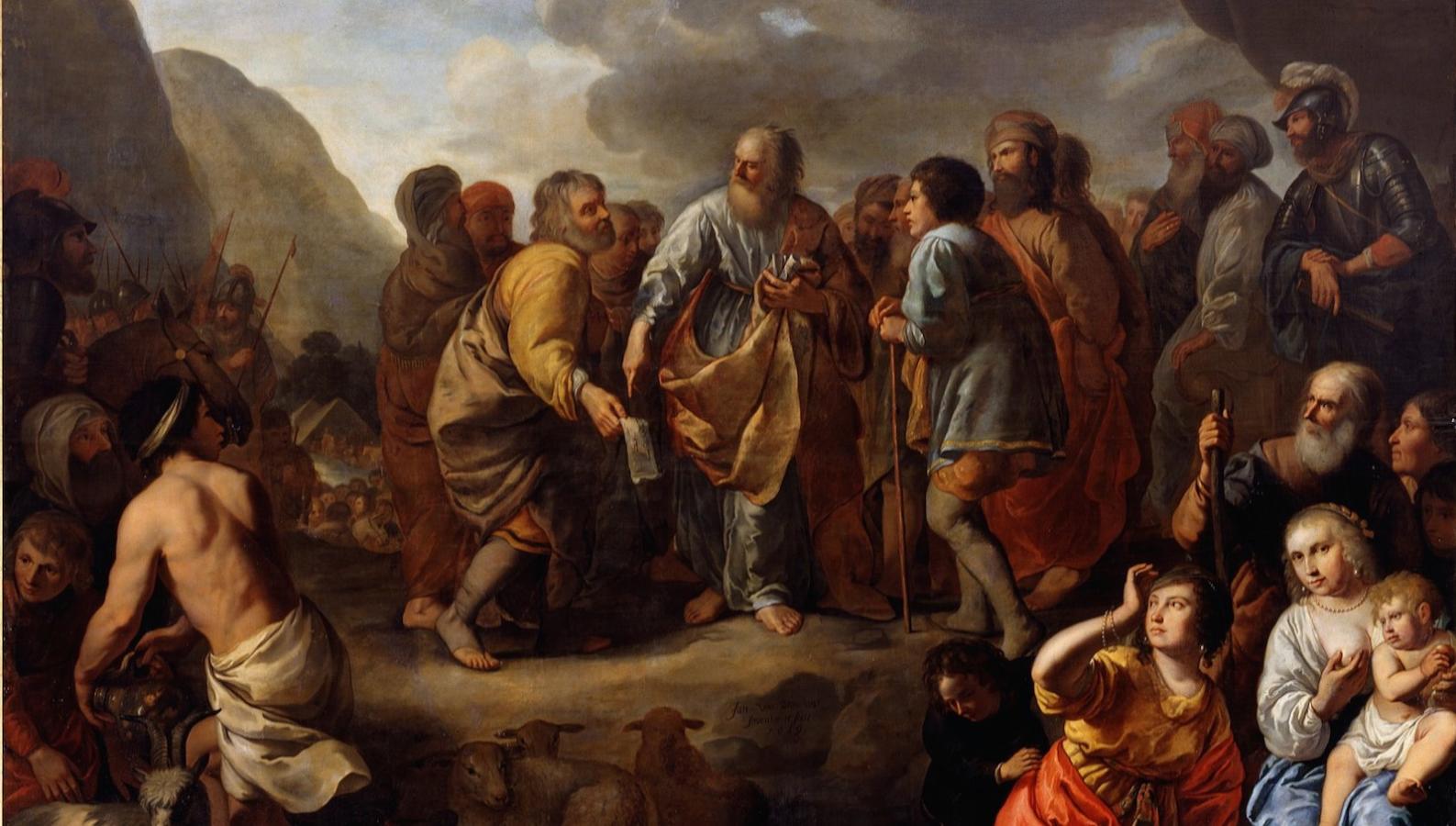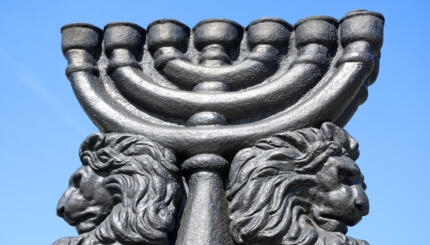Commentary on Parashat Yitro, Exodus 18:1-20:23
This week’s portion opens with a friendly, wizened face. Jethro — priest of Midian, father-in-law of Moses — emerges from the wilderness, daughter and grandsons in tow. After hearing of Israel’s liberation, the priest has come to reunite Moses with the family he had previously sent away. Moses’s delight in seeing Jethro is palpable. The text is suffused with a rare tone of uncomplicated warmth–relief, even, at the esteemed elder’s validation of his son-in-law’s exploits and powerful God.
There is, however, not much room in Moses’s life for such comforts. No sooner than the morrow does he return to a grueling regimen–attending to those who, seeking justice for their conflicts and claims, “stood upon [him] from morning until evening.” In this tableau’s corner, one can just make out Jethro emerging into the morning dew, taking in the endless gaggle of contestants bearing down upon Moses. Surveying the snaking line, the bewildered priest poses to his son-in-law: “Why do you sit alone with all the people standing upon you from morning to evening?”
Dismissing Moses
In short order, Jethro dismisses Moses’s defense of his solitary endeavor. “The thing you do is not good. You will surely wear yourself out–both you and this people that is with you–for the thing is too heavy for you, you will not be able to do it alone.” Moses, Jethro admonishes, must delegate authority to trusted judges who will seek the leader’s counsel only in the most difficult cases.
It is not surprising that Jethro quickly grows concerned with the specter of a depleted Moses. Indeed, immediately preceding Jethro’s arrival, Moses appears as a wretchedly fatigued man: his raised arms–talismanic keys to victory in the battle with Amalek–remaining outstretched only through the support of Aaron and Hur.

Help us keep Jewish knowledge accessible to millions of people around the world.
Your donation to My Jewish Learning fuels endless journeys of Jewish discovery. With your help, My Jewish Learning can continue to provide nonstop opportunities for learning, connection and growth.
But, pointedly, Jethro’s concern is not limited to Moses alone. The Midianite fears too for the nation’s well being. In a query at once tender and accusing, Jethro plies: “What is this thing that you do to the people?” Unless justice is made more accessible, he warns, the people themselves will be worn down through waiting. But, if Moses appoints judges, Jethro assures, “you will be able to stand, and also all this people will come to its place in peace.” Sensing, perhaps, the ominous implications of this assurance’s inverse, Moses heeds his father-in-law’s words.
Jethro’s advice heads off a corrosive situation for the young nation, one that unfortunately proliferates throughout the world today. India’s example–where an average 27.2 million cases are pending in the lower courts yearly–is particularly sobering. Transparency International deems India’s judge-to-citizen ratio “abysmally low,” with 12 to 13 judges per 1 million persons. Such a mind-boggling disparity means that it would take an estimated minimum of 300 years to clear all cases pending in India’s courts–if no further ones were brought.
Resulting in Corruption
Serious corruption is the predictable result of such a morass, with nearly 50 percent of Indian households involved in judicial proceedings reporting that they have paid bribes. Nearly a quarter of these payments were made to obtain a favorable outcome; astonishingly, the same percentage of bribes was paid simply to speed up the judicial process. Indeed, inordinate delay is cited as the primary reason for rampant corruption, with a former Indian Chief Justice best summarizing the consequences: “Delay erodes the rule of law and promotes resort to extra-judicial remedies with criminalization of society…Speedy justice alone is the remedy for the malaise.”
Judicial corruption is destructive for all who seek justice, but it is particularly debilitating for the poor and powerless–those unable to pay for the protection and stability that any legal system should minimally provide. Advocating for the world’s 4 billion impoverished who lack access to legal protection, a UN Commission recently insisted on the recognition of “a basic, but often overlooked, truth: law-induced exclusion and poverty go hand in hand, yet neither is inevitable.”
It is surely significant that the episode recounting overhaul of the Israelites’ proto-judiciary appears immediately before the covenant at Sinai. In its sequence, our parashah seems to imply that there is something essentially prior to the law’s substance and content, as revealed in all its glorious pomp. The law’s processes, its institutional infrastructure, the fair and efficient functioning of this staid human system–so earthly in its unremarkable mundanity–just may be the necessary prerequisite to Divine Revelation.
Perhaps it is thus that we can understand the words of our contemporary sages, eager for justice to finally be done: “[T]he rule of law is not a mere adornment to development; it is a vital source of progress. It creates an environment in which the full spectrum of human creativity can flourish, and prosperity can be built.”



